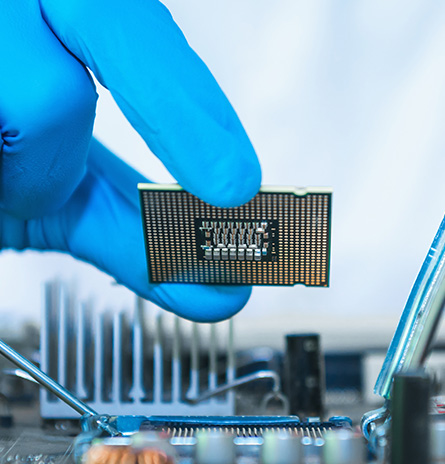文章
Elevate your Lift Controls with EVE in Graphical Touch Display Controls
6 Mar 2024 –
Elevators, our “Unsung Heroes”
Elevators, the unsung heroes of vertical transport, have long served as vital conduits in buildings worldwide. Yet, despite their ubiquitous presence, traditional elevator interfaces have remained stagnant, often failing to meet the evolving needs of users, especially when it comes to customer experience – to give Elevator “riders” a lasting impression of a modern and attractive elevator capsule experience.
The good news is, with the advent of cutting-edge technology today, you have a transformative opportunity to revolutionise, or at least modernise, elevator experiences, especially now with Touch Screen technology being more prevalent.
The Future VS Traditional Elevator Interfaces – Challenges in User Experience
In today’s digital era, traditional elevator interfaces fall short in delivering optimal user experiences, relying heavily on mechanical buttons which lack the interactivity demanded by modern users.
Leading players in the elevator industry are swiftly transitioning to touch graphical display controls, pushing technological boundaries. Innovations such as the IF Design 2020 award-winning concept introduce longer touch displays, replacing buttons and enhancing user experiences.
Thus, elevator designers do face increasing pressure to adopt these technologies and to address concerns regarding the integration of touch graphical displays into lifts. Key considerations include:
- Safety Concerns
Engineers express concerns over the safety aspect of touch displays controls compared to traditional mechanical buttons. - Learning Curve Complexity
Engineers are anxious about transitioning from traditional lift controls to touch displays due to the perceived learning curve to port over to using new technology. - Requirement to Change to High-End MCU
There is a misconception that adding graphics to elevator applications requires upgrading to complex high-end microcontrollers (MCUs) with built-in graphical capability. - Robustness Concerns
Engineers are concerned about the robustness and maintainability of display and touch-display based control panels in elevator systems. - Limited flexibility of traditional lift controls
Traditional lift control panels with buttons and indicators offer very little flexibility for customisation and updates.
Embedded Video Engine (EVE) for better User Interfaces
Our Embedded Video Engine (EVE) solutions bring an innovative approach to display implementation, helping to address these pressing challenges. Some of the ways in which EVE can help pave the way for using colour touch displays in lifts include:
- Failsafe and Safety with EVE
Using multiple EVE-based touch display panels helps provide redundancy, whilst positioning them at different heights also improves accessibility for users with disabilities. The flexibility of a touch display also enables innovative solutions to improve safety. For example, a large Door Open button can be displayed whilst the doors close, allowing passengers to easily re-open the doors.
- Ease of Transition with EVE
EVE display controllers combine innovative features with comprehensive software tools/examples support. This simplifies the integration process and helps designers used to traditional controls to transition easily to graphical touch displays. EVE’s audio and touch features make it easy for designers to improve user perception whilst minimising workload on the MCU.
- Enhanced Compatibility with EVE
EVE display controllers allow the best MCU to be selected for the elevator application itself rather than stepping up to a high performance MCU with built-in graphics. EVE simply connects to the existing MCU over SPI, allowing graphical touch controls to be added with minimal change to the existing lift MCU platform, reducing effort and cost.
- Robustness and Customisability with EVE
Our EVE devices offer custom touch capability, supporting a more diverse range of touch panels including toughened vandal-proof designs. The EVE controller and display can be integrated into an easily replaceable display module alleviating perceived maintenance issues.
- Flexibility and Enhanced functionality with EVE
Touch display panels based on EVE enable easy customisation of the elevator controls for different applications, such as custom backgrounds, logos, different languages, and details of the department on the floor. They allow customising of the buttons, and updating controls for new features or to comply with new accessibility regulations. Further improvements include displaying lift occupancy levels or even live video allowing users to check how busy the lift is.
Conclusion
As elevator industry leaders adopt graphical touch displays, designers feel compelled to incorporate these technologies into their designs. Initially, they might introduce graphical touchscreens alongside mechanical buttons, enhancing features like floor indications and advertisements. Eventually, a complete transition to touch-display solutions becomes viable, replacing traditional buttons entirely.
While embracing graphical touch controls may raise concerns among designers, practical strategies such as utilising multiple displays and selecting suitable control solutions can ease the process. Importantly, adding the graphical touch display does not require a change to a complex high-performance MCU with integrated graphics capability. Instead, it can be achieved whilst retaining most of the current design by adding the EVE graphics controller via SPI to the existing MCU.
Bridgetek’s EVE devices offer extensive features and support tools, enabling engineers to create appealing and user-friendly elevator interfaces effortlessly.
For further insights on how EVE can enhance your product’s user interface, contact us at marketing@brtchip.com or visit our Elevator Control Panel – IC & Module (brtchip.com).


